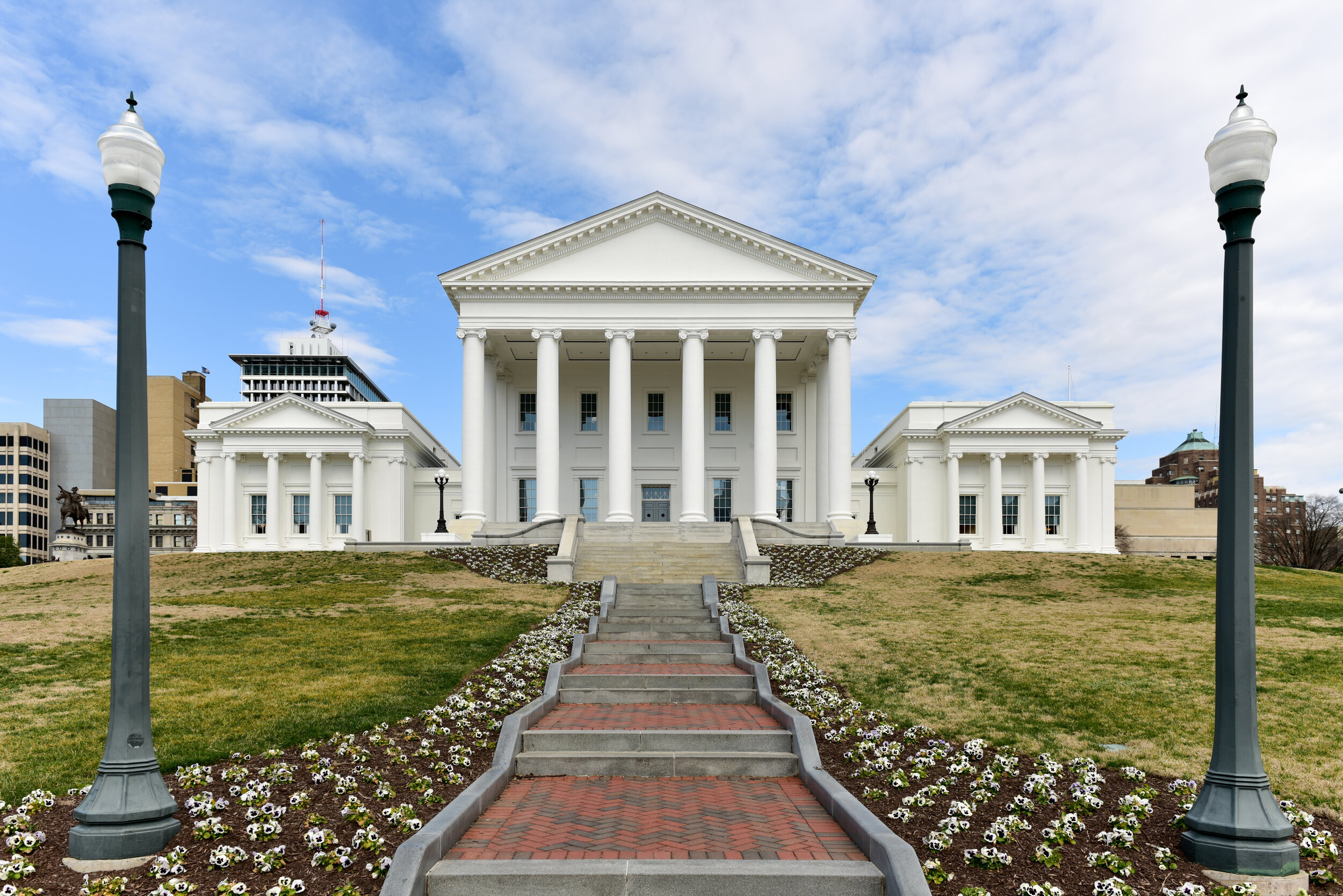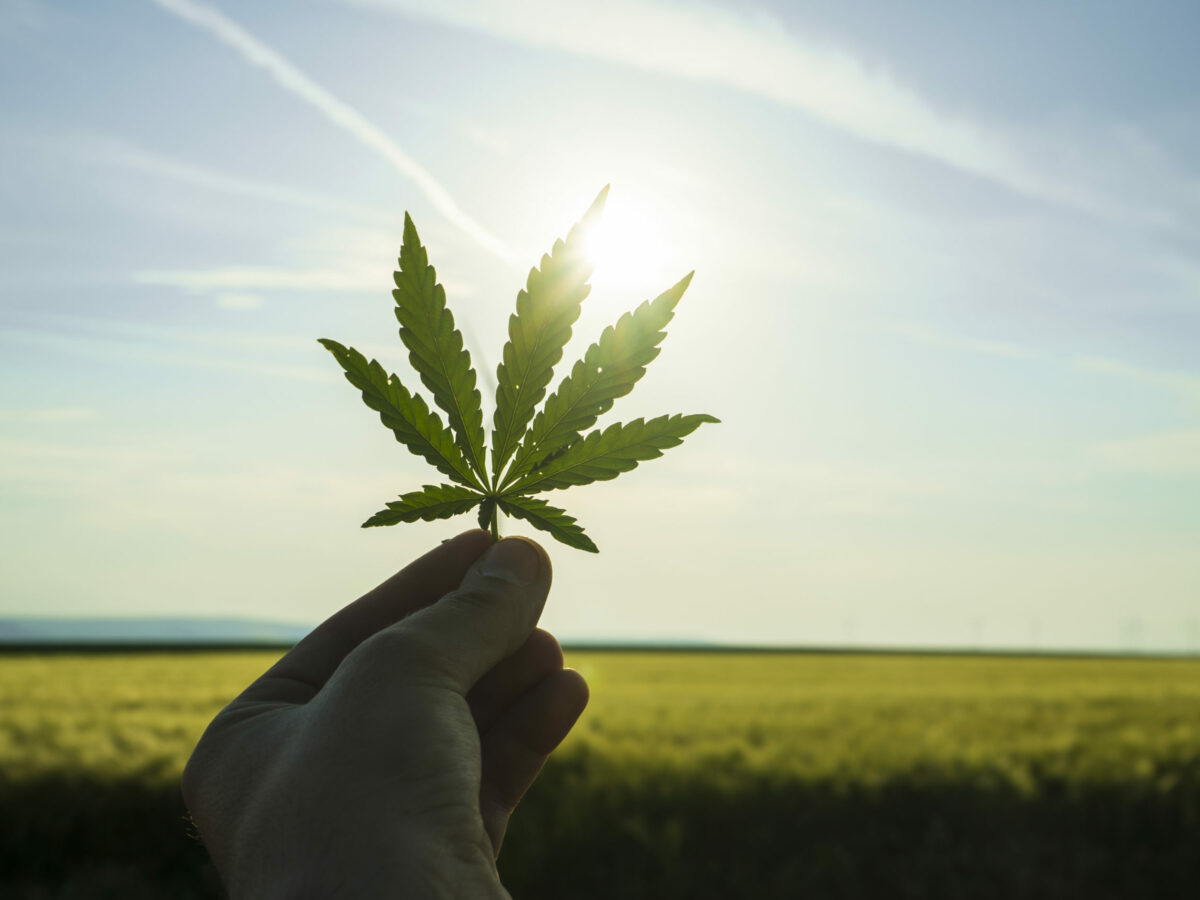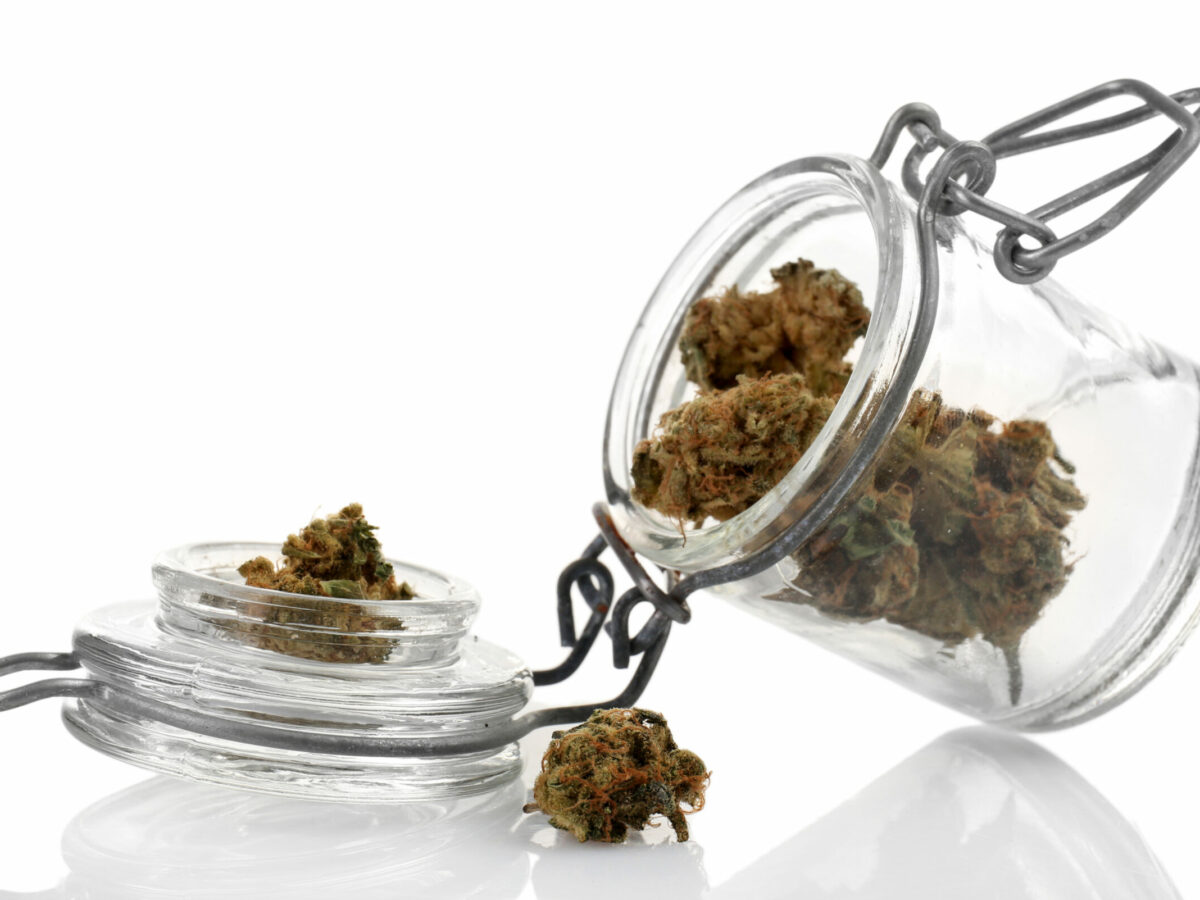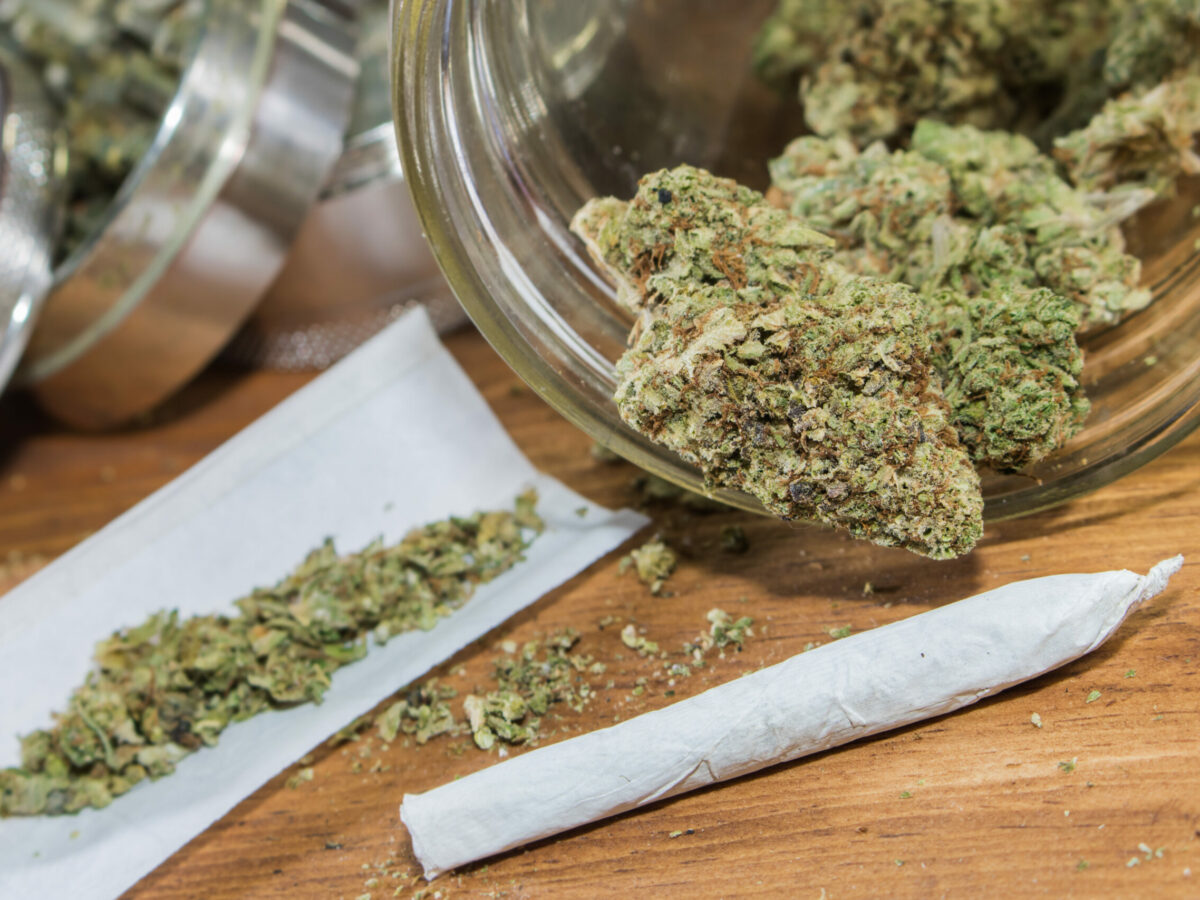This time last year, Virginia Democrats were sky high.
While holding the executive and legislative branches, Democrats managed to legalize possession of marijuana in the Commonwealth while becoming the first southern state to do so.
Better yet, legalization was imminent, set to be the law of the land by July 1 as an effort to prevent more arrests and black market sales. Soon, adults 21 and older would be able to possess up to an ounce of pot with no legal penalty, ending decades of punitive drug laws that disproportionately resulted in the incarceration of Black residents. It was an extraordinary achievement, one that lawmakers and social justice advocates had worked toward for years. Sure, there were big questions that were kicked to the next year – like what legal retail sales would look like – but the spring of 2021 was a time for celebration.
A year later, those good vibes have gone up in smoke.
Democrats no longer hold the majority in the House of Delegates. There’s a Republican in the governor’s mansion who hasn’t exactly signaled his desire for retail sales. Democrats’ visions for creating a legal retail market are scattered, with some social justice organizations criticizing Democratic lawmakers for attempting “to reactivate the Drug War.” And worse, a bill that would have legalized retail sales by September died an unceremonious death in a House subcommittee at the hands of the GOP, effectively crushing any chance of a weed market opening in the next year.
The failed attempt at creating infrastructure for cannabis retail sales leaves Virginia’s marijuana laws incomplete and in a precarious limbo.
“It’s an extraordinary disappointment for Virginians,” JM Pedini, executive director for the pro-legalization non-profit VA NORML, says. “I’m trying not to be all doom and gloom…but there was only one vehicle to advance retail access. There isn’t a clear path forward today.”
While the election of Gov. Glenn Youngkin and other Republicans in the House marked a turning point for the state, it wasn’t the only factor that led to the weed market’s temporary demise. Some lawmakers and advocates lament that Democrats didn’t seize the power they had when they had it, allowing a hugely consequential industry to slip through their fingers in the process.
Even with a slim Democratic majority in 2021, the party had to make significant concessions to get a bill passed. The bill passed each chamber by only a very small margin; it was a 20-20 tie in the state senate before Lt. Governor Justin Fairfax delivered the deciding vote. And the version that senate Democrats did agree to pass delayed a number of key decisions until 2022.
“If it was up to me, we would have passed the bill in full last year,” Sen. Adam Ebbin (D-Alexandria) tells The Outlaw Report about the bill he originally proposed in 2021, which created a regulatory structure but had retail sales starting in 2024. (Then-Gov. Ralph Northam proposed an amendment to take that component out in order to legalize possession later in 2021.) “But there were some that thought that such a voluminous bill and such a weighty topic needed further consideration. And there is certainly a cost being paid for that decision now.”
In February, Ebbin proposed S.B. 391, a newer iteration of the legalization framework bill he introduced last year. This version would set up processes for legal retail sales, plus allow already existing medical dispensaries to start selling cannabis to adults on Sept.15. At the time, Republican leadership made it clear they were not on board and had every intention of slowing cannabis legislation down, if not stopping it all together.
“Let’s be clear: Virginia Democrats made a great big mess when they legalized marijuana without putting any regulatory or retail structure in place,” Republican Speaker of the House Todd Gilbert tweeted. “We are left having to clean up their mess and we will not make it worse by rushing to fix it.”
And with a Republican-controlled House, that’s exactly what happened, pushing the decision until at least next year.
But some on the left aren’t entirely upset about that, arguing that Ebbin’s bill was less progressive than the version he introduced last year. The non-profit social justice organization Marijuana Justice was one of those groups, arguing that Ebbin’s bill created more restrictive drug laws.
“By creating this early [sales] system, we not only were creating a terrible business model, but we were also reinstituting a war on drugs with more possession crime,” executive director Chelsea Higgs Wise says.
In S.B. 391, possession of more than 4 ounces of marijuana but less than a pound would have been reclassified as a Class 3 misdemeanor for a first offense and a Class 2 misdemeanor for a second offense. That can have jail time attached to it.
In the 2021 legislation, this was only a civil offense. So what changed?
Ebbin says one of the main drivers of S.B. 391 was to curtail the illicit market quickly and help consumers obtain regulated products in a safe manner. He cites the often-used data point that Virginia has the fourth-largest illicit market, valued at nearly $2 billion.
“[The bill was] mainly to capture the ballooning illicit market,” he said. “I don’t want any Virginian to be getting something in the black market that could damage their health.”
Higgs Wise argues it was a strategy to create urgency around passage of the bill, and calls it “fear mongering” to say that black market will continue to grow. (“Public safety equaling more dollars for enforcement, aka more dollars to reactivate the drug war, is not what the community is asking for when it comes to actual public safety,” Higgs Wise says.)
Black residents are 3.4 times more likely to be arrested by police for cannabis possession than white residents in Virginia, according to a recent ACLU study. Black residents are also nearly four times more likely to be convicted than white residents, even though cannabis use amongst those demographics are similar.
Pedini believes this change from civil offense to a misdemeanor largely had to do with the political situation the Democrats currently find themselves in. It was essentially a compromise to Republicans who want marijuana laws that they envision will protect public safety.
“It’s political posturing,” says Pedini. “It’d be great if maybe we all could understand the political reality here… cannabis is just one pawn on the chessboard of the 2022 General Assembly.”
The party will have to agree on a legalization framework by July of 2024, the deadline for a regulatory system that’s outlined in the 2021 legalization bill.
Since elections for both the Virginia Senate and House of Delegates don’t occur again until November 2023, the political divisions that exist today won’t dissipate any time soon. And until then, there will continue to be a gap in Virginia cannabis policy – legal to possess and grow in small quantities, but illegal to sell, not unlike the predicament that exists in D.C.
Criminal justice advocates are using the intervening time to push for a more progressive bill.
Higgs Wise makes it clear that any legalization framework must include automatic resentencing for the roughly 570 people who are still in Virginia Department of Corrections custody for cannabis-related offenses. Resentencing would allow residents that are currently incarcerated for certain marijuana-related crimes eligible to have their sentence commuted.
Higgs Wise is also pushing for lawmakers to decrease penalties on possession and intent to distribute, particularly when it comes to minors. Higgs Wise cites New Jersey’s year-old law that prohibits arrests related to marijuana for those under 18 years old. Instead, the minors get written warnings, a notification to parents, and a potential referral to social services.
There’s also the matter of the Cannabis Equity Reinvestment Fund, introduced in S.B. 391, whose funds would go to people and their families who have been impacted by marijuana enforcement, including those returning home after their sentences have been commuted. While S.B. 391 would have allotted 30% of tax revenue from retail marijuana sales into that fund, Higgs Wise and other criminal justice advocates hope to see that bump up to 50% or even 70%, more akin to the version passed in New Jersey, whose legal market is expected to open this spring.
“This is what public safety is for us,” Higgs Wise says. “It’s lifting up our public, freeing our public, and infusing cash into our public.”
And while some no doubt see what has happened since over the last year as a failure of leadership, Higgs Wise isn’t as pessimistic.
“After 2020, everyone told me there would be no chance [of legalization] in the next five years. 11 months later, we had a bill,” she says. “I’m a realist. I know what certain political dynamics mean… I think the possibilities and the quick shift in politics over the last few years is an indication of an opportunity.”



